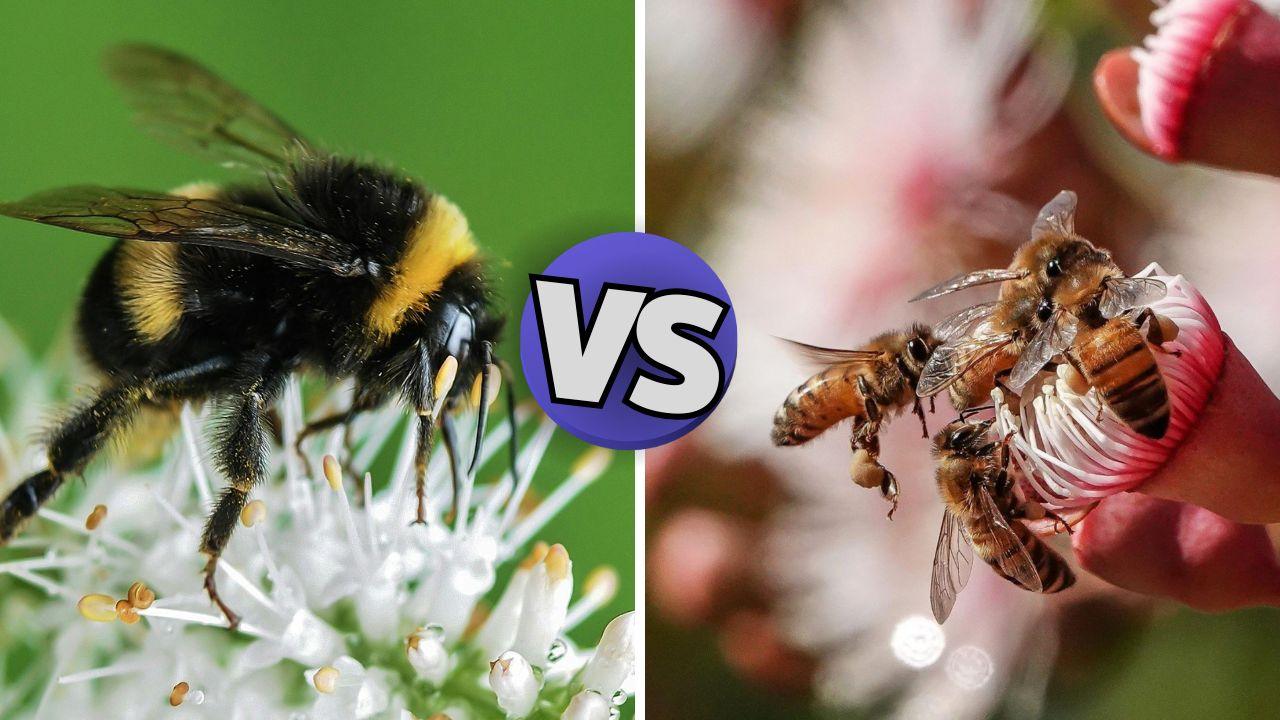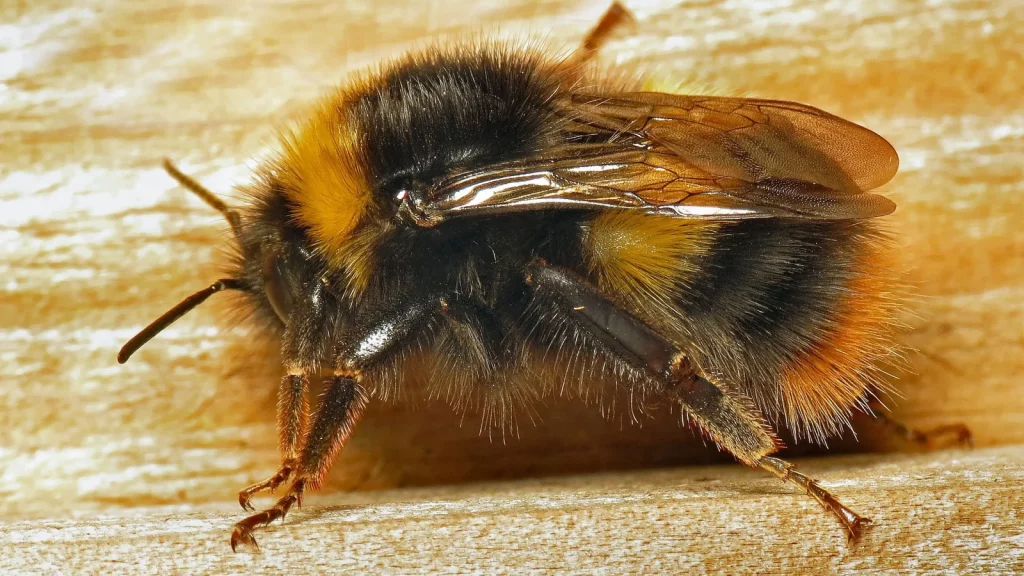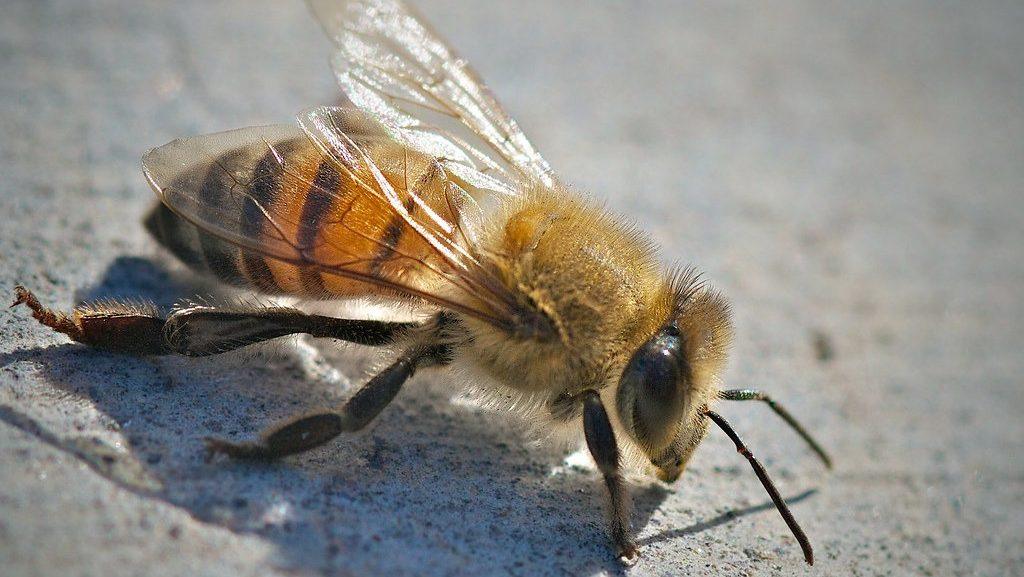Key Takeaways
-
Body Shape and Size: Bumblebees are large, round, and hairy; honey bees are slimmer with defined black stripes.
-
Wing Proportions: Bumblebees have short wings; honey bee wings extend past their abdomen.
-
Colony Size and Behavior: Bumblebees live in small colonies and sting only when provoked.
-
Honey Bee Aggression: Honey bees live in large colonies and are more aggressive in defense.
-
Pollination Role: Bumblebees perform buzz pollination; honey bees contribute to honey and wax production.
-
Nest Type: Bumblebees nest in the ground or burrows; honey bees build permanent wax hives.
-
Nest Longevity: Bumblebee nests last one season; honey bee hives survive multiple seasons with thousands of bees.
 Bumblebees and honey bees are often confused because of their shared role in pollination and similar appearances. However, these two fascinating insects have distinct differences in physical traits, behavior, and ecological contributions. Understanding these differences can help you identify them and appreciate their unique roles in the ecosystem. Let’s dive into the key differences between bumblebees and honey bees.
Bumblebees and honey bees are often confused because of their shared role in pollination and similar appearances. However, these two fascinating insects have distinct differences in physical traits, behavior, and ecological contributions. Understanding these differences can help you identify them and appreciate their unique roles in the ecosystem. Let’s dive into the key differences between bumblebees and honey bees.
Physical Differences: Bumblebee vs Honeybee
Bumblebees and honey bees have distinct physical features that make them easy to differentiate.Key Characteristics of Bumblebees
-
 Body: Larger and rounder bodies covered in thick, dense hair.
Body: Larger and rounder bodies covered in thick, dense hair. -
 Color: Black and yellow color patterns, often appearing less defined.
Color: Black and yellow color patterns, often appearing less defined. -
 Wings: Shorter wings that look proportionate to their body size.
Wings: Shorter wings that look proportionate to their body size.
Key Characteristics of Honey Bees
-
 Body: Smaller, slender bodies with less hair.
Body: Smaller, slender bodies with less hair. -
 Color: Golden brown or amber-colored bodies with defined black stripes.
Color: Golden brown or amber-colored bodies with defined black stripes. -
 Wings: Long, prominent wings that extend past their abdomen.
Wings: Long, prominent wings that extend past their abdomen.
Bumble Bees vs Honey Bees: Behavioral Differences
The behavior of bumblebees and honey bees also differs significantly.

Not getting a solution?
Get your free pest control estimate today!- Bumblebees are social but live in much smaller colonies compared to honey bees.
- They are less aggressive and usually sting only when provoked.
- Known for their “buzz pollination,” a unique technique that helps pollinate certain plants like tomatoes.
 Honey Bees
Honey Bees
- Honey bees are highly social and live in large colonies with thousands of workers.
- More likely to defend their hive aggressively if they feel threatened.
- Play a crucial role in producing honey and wax, which are valuable to humans.
Do Bumble Bees Have Hives?
The nesting habits of these two insects highlight another critical difference.| Characteristic | Bumblebees | Honey Bees |
|---|---|---|
| Nest Location | Create small, temporary nests in the ground, grass, or abandoned burrows. | Build intricate, permanent hives from wax. |
| Nest Structure | Do not have hives made of wax. | Hives are home to thousands of bees and can survive for multiple seasons. |
| Nest Purpose | Nests house fewer individuals and last only for a single season. | Hives are often harvested for honey, while bumblebee nests are left untouched. |
Steps to Handle Bees Safely
- Encountering bees near your home can be concerning, especially if you’re unsure of the species. Here are some tips to handle the situation:
-
Stay Calm: Avoid sudden movements that might provoke the bees.
-
Observe from a Distance: Identify the type of bee by their size, color, and behavior.
-
Protect Pollinators: Do not harm bumblebees and honey bees; they are vital to the ecosystem.
-
Contact Professionals: If the nest is a safety concern, call pest control to handle it safely.





